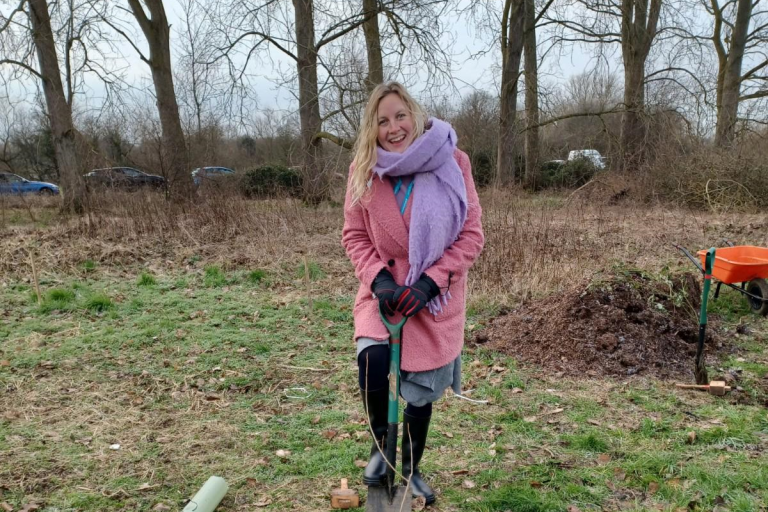
As part of its commitment to biodiversity and in commemoration of a local ecologist who led the UK’s research into the tree, Milton Keynes City Council has today (17 January) planted 100 of Britain’s most endangered native tree, the Black Poplar, at Emberton Country Park.
Once a common part of Britain’s countryside and used by communities throughout history to make useful items from cart wheels to clothes pegs, it is thought there are fewer than 7,000 Black Poplars left in the country today, and just 300 of those are female trees. The trees need male and female types to be planted close together to reproduce, but when thriving can live as long as 200 years and grow to around 30 metres. They’re a great home for biodiverse species, including more than 100 specialist insects that are attracted to them.
Milton Keynes City Council worked with Community Trees:MK to make the project happen. Emberton Country Park is the perfect environment to cultivate the rare Black Poplar as it has more than 200 acres of parkland including the kind of river and wetland habitats that provide ideal conditions for Poplars to grow and thrive. An equal mix of female and male trees will be planted.
Funding for the planting was sourced with the help of Community Trees:MK from the Local Nature Partnership for Buckinghamshire & Milton Keynes, coming from a legacy fund for the late Alan Holmes. Mr Holmes was an ecologist leading research into Black Poplars, as well as a former employee of Milton Keynes City Council.
The Black Poplar trees were planted by the Park’s regular team of volunteers alongside guests including:
- Friends and family of Alan Holmes
- Mayor of Milton Keynes, Cllr Mick Legg and Mayoress Mandy Legg
- Roger Jefcoate, the Deputy Lieutenant of Buckinghamshire
- Greg Fairley from Community Trees:MK
- Ecologists from Milton Keynes City Council and Buckinghamshire Council, including Paul Holton
- Joan Cotterill from Forest Research
- Mark Brent, Curator of Oxford Botanical Gardens
“We are delighted to play our part in bringing 100 Black Poplar trees to Milton Keynes, our fantastic city of trees, and especially to Emberton Country Park which so many local people enjoy for its brilliant wildlife and walks. The Park is a great place for these trees to thrive and pollinate, and we expect future generations to see this British variety go from strength to strength locally. We’re committed to biodiversity in our city, and these trees will become a useful home to a diverse range of species. It’s a fitting tribute to Alan Holmes’ work and dedication to see these trees planted in Milton Keynes.”